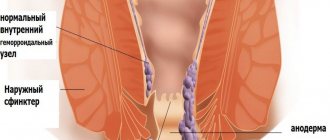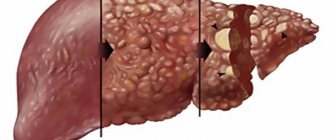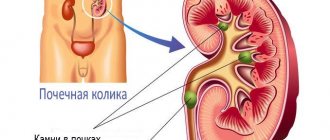If a person has liver cancer, how long do they live with this disease? Not many of the sick want to know about this; often patients prefer to be in the dark. If a person lives 5 years after diagnosis, this period is called 5-year survival.
Metastases are secondary foci of any cancer tumor. They are crucial for predicting the disease. A special role is played by the organ into which the metastases have penetrated. It is also worth noting that the disease is treatable at the initial stage (1 and 2).
Life expectancy for liver cancer
If we talk about mortality, a liver tumor ranks third among all malignant diseases. Even the most experienced doctor cannot determine the life expectancy of liver cancer, since it all depends on several factors. Statistics say that few people with this diagnosis live longer than 5 years.
Life expectancy with liver cancer is affected by the following:
- stage of the disease;
- presence of concomitant diseases;
- early diagnosis of cancer;
- treatment effectiveness;
- patient's age;
- psychological characteristics of the patient.
In 75% of cases, metastases from other tumors, for example from the colon, penetrate into the liver, then only 10% of operations give a positive result; for other cancers with metastases to the liver, this figure is 5%.
Diagnostics
Primary liver cancer is diagnosed using laboratory and instrumental methods.
Hardware methods
Ultrasound with (or without) a contrast agent can detect the liver tumor nodule(s).
The most informative method is three-phase magnetic resonance imaging using a contrast agent.
Such a study makes it possible to determine the size and location of a liver tumor, detect metastases, invasion into blood vessels, and portal hypertension.
Laboratory methods
Malignant liver tumors are usually accompanied by dysfunction of the organ, associated with changes in a number of hemodynamic (signs of splenogenic and megaloblastic anemia), biochemical (increased activity of a number of enzymes, hypoproteinemia) indicators, and impaired synthesis of blood coagulation factors.
To assess liver function, clinical and biochemical blood tests and coagulography are performed.
In addition, biochemical analysis determines the level of α-fetoprotein, a protein that is a marker of a malignant liver tumor.
To verify the diagnosis, a pathomorphological examination of the biopsy specimen is performed.
How do people die with liver cancer?
If it is almost impossible to answer the question of how long people live with liver cancer, then it is possible to tell how people die with this disease. Death occurs in different ways. Most often, a chemical imbalance occurs in the body, since the main function of the liver is to supply the body with various substances in a certain concentration.
When there is a malfunction in the body, healthy liver cells are attacked by damaged cells. A chemical imbalance occurs. The person loses consciousness and then dies.
Another cause of death for the patient is complications associated with liver cancer:
- Bleeding from the formation.
- Disintegration of the tumor and its suppuration.
- Blockage of the bile ducts and, as a result, poisoning of the body by the breakdown products of bile acids.
- Ascites develops due to impaired blood flow from the abdominal cavity.
Classification by cell differentiation
Healthy mature cells of the body have their own specialization (differentiation). During malignancy, the cell loses the ability to perform its functions - partially or completely.
The lower the cell differentiation, the more aggressive the tumor is - rapid growth, early metastasis.
If the cells have a low degree of differentiation, then even in the early stages the prognosis may be unfavorable.
- G1 – highly differentiated cancer;
- G2 – cancer of moderate differentiation;
- G3 – cancer of low differentiation;
- G4 – undifferentiated cancer.
Cancer differentiation
https://youtu.be/vPc-uJrRDJM
Survival at stages 1 and 2
Unlike other internal organs, the liver is capable of recovery. Therefore, the prognosis for liver disease is often favorable. But not in the case of oncology. Since malignant cells are prone to relapse. In addition, liver cancer often develops as a secondary disease against the background of tumors in other organs.
At the first stage of the disease there are no metastases, and it is best treated. The circulatory system is not damaged, but the liver is already 25% disabled. The 5-year survival rate in this case is 75%. But the problem is that in the absence of symptoms at an early stage of the disease, it is diagnosed only at stages 2-3.
In medicine there is a term “five-year survival rate”. If during this period a person has received full treatment and his quality of life has improved, then in the future there is hope that he will live for some more time. But the question of how long people live with liver cancer cannot be answered by any doctor.
At the first and second stages of oncology, transplantation can save the patient. But, unfortunately, this procedure is not available to everyone due to the high cost and unavailability of donor material. Therefore, doctors have to provide treatment in other ways, depending on each specific situation.
The basis of treatment is removal of the affected area of the liver and radiation therapy.
Already at the second stage, the process of damage to blood vessels and rapid growth of the tumor occurs. There may be several tumor nodes. Half of the organ is affected. The tumor itself grows up to 5 cm. If treatment is started during this period of time, the five-year survival rate will be only 40%.
Stages 3 and 4
At the third stage, the lymph nodes are affected, the tumor grows and spreads to neighboring organs and tissues. Most often these are the digestive and abdominal organs. Ascites often occurs when fluid accumulates in the abdominal cavity. In this case, an operation is performed.
Doctors immediately inform the patient that surgery at this stage of the disease is useless, as is organ transplantation. Maintenance therapy is carried out, which includes chemotherapy, radiation and targeted therapy, and embolization is performed.
Despite this treatment, the patient's life expectancy is significantly reduced. On average, he can live 6-8 months.
The five-year survival rate for stage 4 cancer is only 6%. During this period, treatment is based on maintenance therapy. It allows you to reduce the spread of cancer cells throughout the body and reduce pain. But we are not talking about recovery.
Treatment
The fourth degree of malignancy is incurable. However, a lot of drugs have been created to alleviate the condition and prolong the life of the patient. The oncologist in most cases offers palliative treatment.
Transplantation or surgery have low effectiveness, since the presence of metastases and secondary tumors in certain areas of the body worsens the picture of recovery. Surgery is used only to remove the main lesion. To reduce the growth of the tumor, embolization of the vessels feeding it can be carried out.
Palliative therapy does not provide a complete cure, but involves containing the progression of the disease. The goal is to reduce pain and the manifestation of secondary symptoms, as well as increase the functioning of important human organs. Great attention is paid to the functioning of the heart, kidneys and brain. They try to treat the remaining metastases with chemicals.
Therapy includes:
- Prescription of narcotic analgesics. Reducing pain is the main goal.
- Maintenance nutrient solutions.
- Albumin if hypoproteinemia is observed.
- Blood transfusion to control anemia.
- Antiemetics.
- Plasmapheresis to combat intoxication and cleanse the blood.
- Ultrahemofiltration.
- Hemosorption.
- Drugs to reduce blood clotting.
- Medicines to prevent heart attacks and strokes.
- Chemotherapy, if the body is able to withstand it.
Traditional methods for cancer are ineffective and useless; relying on medicinal herbs at stage 4 is pointless. Folk remedies help to slightly improve the condition and slightly delay death.
Chemotherapy treatment should be described separately. The introduction of drugs into the blood gives positive results. The effect spreads to most of the body, entering every molecule with the blood. Chemotherapy is an effective treatment measure in the final stages of this cancer. The downside is intoxication, which is why it is not actively used by oncologists. Due to illness, a patient cannot always withstand the load of chemical intoxication, because he is already severely weakened, exhausted and dehydrated. Doctors can use it in small doses, but the potential result will then be greatly affected.
Cirrhosis of the liver
There are several reasons for the development of cancer in the liver. First of all, negative external factors that lead to disruptions in the functioning of the organ and, as a consequence, to the development of malignant tumors. These factors include:
- Chronic hepatitis.
- Alcohol abuse.
- Presence of parasitic infections.
- Hereditary factor.
- Intake of aflatoxins, etc.
But the main cause of cancer development is cirrhosis. As a rule, cancer cells grow against the background of this chronic disease. And in medicine this figure is 60-85%.
You can live with cirrhosis of the liver for many years. But a person will be accompanied by the risk of the disease degenerating into a malignant tumor. If oncology does develop, drug therapy is prescribed, but the presence of such serious pathologies does not lead to a good end.
Remember also that a person’s attitude plays an important role in successful treatment; you should not give up. Medicine does not stand still and every year new methods of treating cancer tumors appear.
In addition, there are cases of miraculous healing in medicine. And all because the person was positive. The help of loved ones and their support are very important for a sick person. All this gives a chance for recovery.
Psychological state of the patient before death
In cancer patients, especially in the last stages, their worldview changes significantly. They evaluate life differently, treat loved ones differently. A person can be self-absorbed, or, conversely, show increased vital activity. These social changes depend on the patient's age, experience, social status, education, and many other factors. It is impossible to predict in advance what the condition of a cancer patient will be; everyone experiences this disease in their own way.
Many people do not realize the criticality of their situation until the very end and try to lead an active lifestyle. When severe weakness develops, such a person falls into a state of depression because he cannot engage in usual activities. Often people become embittered and aggressive. Hepatic encephalopathy, which changes the character and intelligence of the patient, is also important.
There are people who, after the diagnosis is announced, become depressed and lose their zest for life. This accelerates the development of cancer and worsens the prognosis. It is extremely rare to encounter patients who adequately perceive their diagnosis and follow all medical recommendations.











